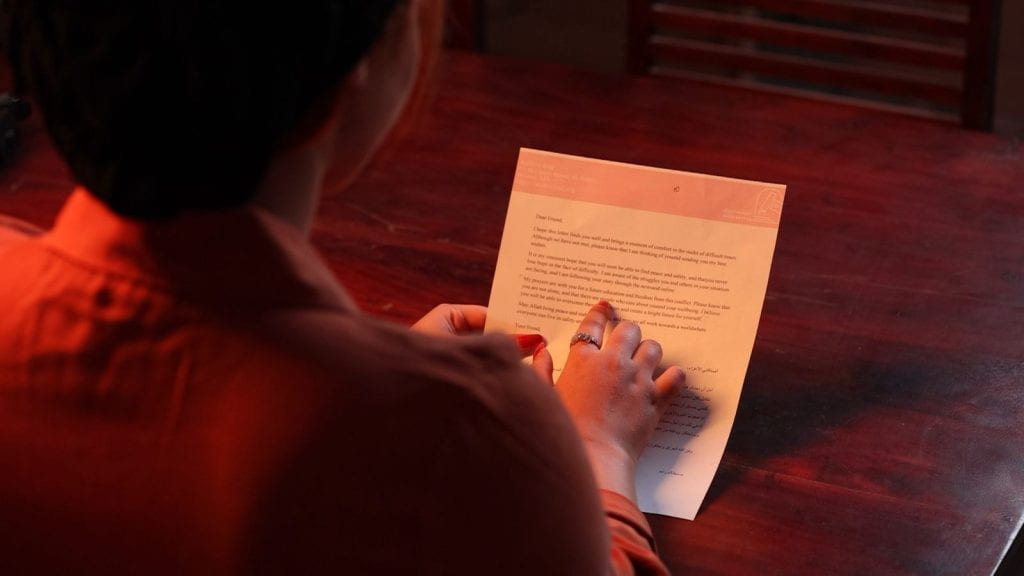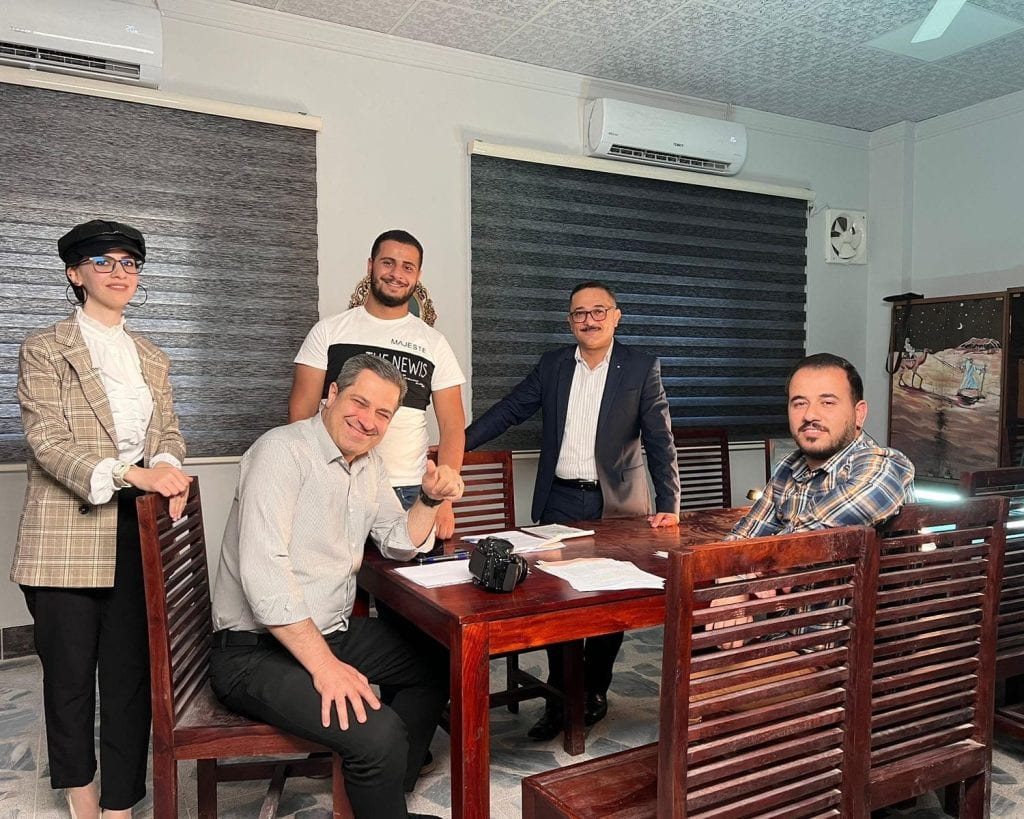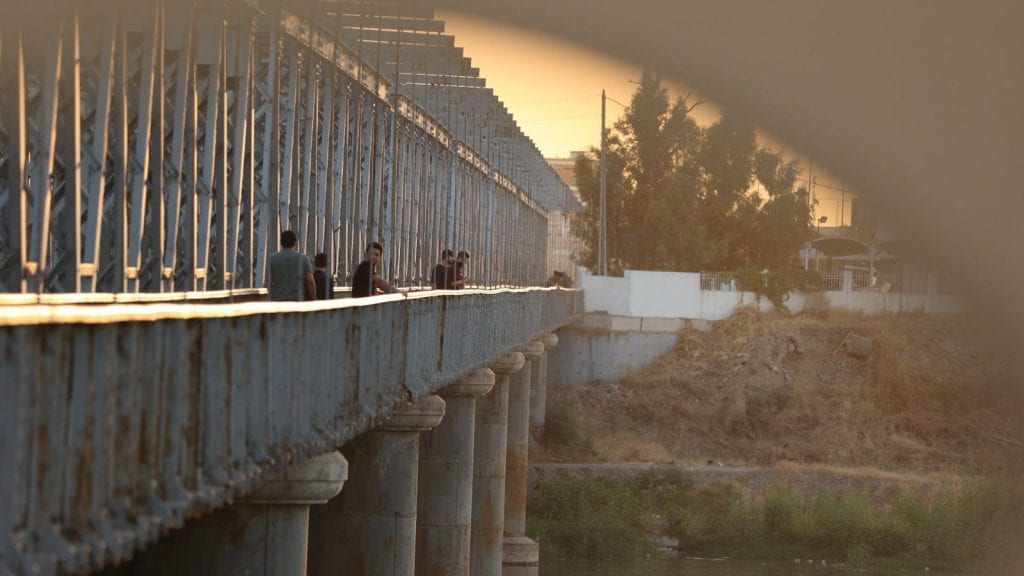By MaryAnn Chiu
Peer Reviewed by REAL Members
The DMV Regional Convening for Refugee Students in Higher Education was a one day convening hosted by The National Association of Higher Education Systems (NASH) Refugee Resettlement Initiative (RRI) and the George Washington University’s Refugee Educational Advancement Lab (REAL). Gathering researchers, practitioners and students from the DMV area, the convening aimed to discuss opportunities and challenges students with refugee backgrounds face when accessing and navigating higher education, come up with best practices to support them, and build a community of practice for further collaboration and action.

The Refugee Educational Advancement Lab organizing team
Reflections
Centering the Voices of Refugees
A common theme I noticed throughout the convening was the importance of centering the voices of refugees. Olufikayo Abiola Akintola, an alumnus of the International Education Program (IEP) at the George Washington University (GW) highlighted centering refugees’ voices as a key principle in conducting refugee-related research. This principle was also reflected in GW’s IEP faculty, Dr. Jihae Cha’s use of storytelling and participatory approaches in understanding Afghan boys’ sense of belonging in school. Instead of sticking to preconceived research agendas, participant-driven research first and foremost listens to refugees’ voices, providing a space for their thoughts to be heard. The assistant director of the First-Gen+ Center at George Mason University (GMU), Rommel Aguilar Cardenas further corroborated this point by calling for a narrative shift from a deficit-viewpoint to an asset-based approach, focusing on what refugees can do instead of what they cannot. It is essential for the higher education community to view refugees as human beings with agency and a voice of their own.
The Significance of Student Initiatives in Higher Education
The student leader panel was living proof that students with refugee backgrounds are far from voiceless. Dudi Miabok is a graduate student with a refugee background who co-founded Elimisha Kakuma, a global initiative supporting youth in the Kakuma refugee camp in Kenya to access higher education. As someone who has first-hand experience transitioning from a refugee camp to a US higher education institution, he affirmed that “If a door is open for me, I will make sure it’s open for everyone.”
Similarly, student leaders like Ayman Habib and Sosan Barakzai viewed their refugee backgrounds as assets that enabled them to understand, connect, and support refugee students in a personal and profound way. Seeing all these student leaders come together to share their work in advancing refugee access to higher education was incredibly inspiring. As a student leader myself, I felt a strong sense of solidarity that there are so many students out there who care about refugee education, and are taking action to make a change. Ayman stated encouragingly that mobilizing students is not as daunting as one thinks. “All it takes is finding students who care.”
Time and time again, students have shown that they can make an impact, and that their voices matter. Amina Iman, the Director of government relations at GW’s No Lost Generation stressed that faculty and institutions should view students as stakeholders in the field. Students provide a wealth of knowledge in the sphere of refugee higher education, and their contributions are not to be underestimated. “Take advantage of the youthful inexperience we have”, Dudi said, emphasizing that an invaluable asset of students is that they are not afraid to dream big. Ayman aptly summarized the significance of working with students by asserting that “students are the voices of higher education.”
The Nitty-gritty of Welcome Corps on Campus (WCC)
The afternoon commenced with two breakout sessions involving current Welcome Corps on Campus sponsors and prospective sponsors, respectively. The Welcome Corps on Campus is an initiative where Universities sponsor students with refugee backgrounds for a 12-month period, providing logistical, financial, and academic support to help them in their higher education journey. I was fortunate to attend the current WCC sponsors session led by Laura Wagner, the Director of Refugee Student Initiatives at the President’s Alliance on Higher Education and Immigration. During the discussions, I had the opportunity to have a glimpse of the nitty-gritty of running the Welcome Corps on Campus. Hearing all the hard work involved in making the Welcome Corps on Campus happen made me appreciate the sponsors even more, and reminded me once again that this is a group effort and cannot be achieved on one’s own.
Another essential component of Welcome Corps on Campus is the pre-college preparation. One of the co-founders of Elimisha Kakuma mentioned what a big leap it is to transition from a camp-based highschool education in Kenya to higher education in the US. She goes on to say that despite this leap, “our students at Elimisha are prepared.” Prior to entering the US campus, sponsored students are provided with thorough training on how to use a laptop, navigate online platforms, send emails, and write essays. These are skills that may be unfamiliar to refugee students, and yet are often expected of them prior to entering college. Thus, it is important to remember that students do not just need support when they are in college, but that preparations should happen long before they step into the campus.
It truly takes more than a village to sponsor a student, but this convening assured me that it can be done.
Emerging Questions
As with most convenings like this, as answers are provided, new questions emerge. One question that really came to mind was when Dudi brought up the importance of recognizing refugees as people instead of some far away statistic or data. I absolutely agree that the quantification of refugees in the media and in research can be extremely dehumanizing. On the other hand, I also think presenting data on refugees can play a role in raising awareness and increasing understanding of the issue at large. With that in mind, how can we present data about refugees while still centering their humanity?
And perhaps another pressing question for me, and I trust, for the numerous attendees who have been greatly inspired by the event: how can we keep the momentum going in our everyday work and life?
For me personally, maintaining connections from the convening is a great way to keep the fire burning. This not only paves the way for future collaboration but allows the conversation to continue. Although I do not have all the answers, joining the Refugee Educational Advancement Lab has inspired me to view the convening as a starting point for change, and to continue to participate in initiatives that support students with refugee backgrounds. For although convenings are important, it is what we choose to do after, that really makes a difference.
Concluding Remarks
It was a joy to attend the convening and be a part of the organizing team. I still recall the day in early September, when the convening was still a concept written on paper. To see this idea come to fruition and people from different age groups and backgrounds coming together because of a kindred care for refugees, made me hopeful that together, we can do so much more.






